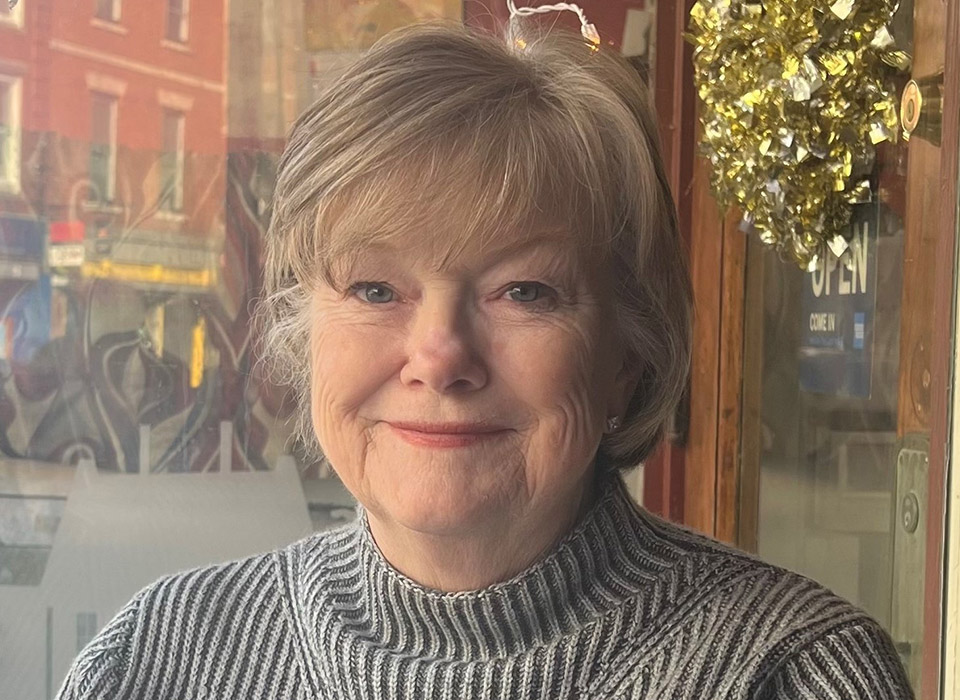A Pioneering Nephrologist’s Mission to Save AKI Burn Patients with Early Hemodialysis

Summary
There is a need to redefine indications for renal replacement therapy in the specialty of burn-induced acute kidney injury, which in the not-so-distant past had a 100% mortality rate, says Amy Sprague, MD. A shift from traditional modalities to personalized dialysis care bolstered by innovation is supporting the change she would like to see.
Amy Sprague, MD, CPI, FACP, the first nephrologist in the U.S. to specialize in burn patients, is focused on redefining the indications for hemodialysis for critically ill patients with burn injuries suffering from acute kidney injury (AKI). AKI is a common complication for burn patients that is historically associated with an exceedingly high 80% to 100% mortality rate in severe cases. Dr. Sprague, who began researching the topic more than 30 years ago while in the U.S. Army, wants to change the way that renal replacement therapy (RRT) is indicated in AKI burn trauma patients, to have it started sooner than it generally is now, prior to the appearance of the classic markers of AKI seen in other patients. In her view, having the ability to deliver flexible and personalized dialysis with the Tablo® Hemodialysis System is a great option for these patients.
“My mission in the burn world with acute kidney injury, is to avoid acute kidney injury,” Dr. Sprague explains. “In burn patients, if you wait for the classic indicators of AKI to start renal replacement, then the mortality rate is exceptionally high and you lose them. I think in the ICU we need to focus on redefining the indicators for renal replacement in these patients, and it needs to not be linked to the typical serum creatinine levels and urine output. The classic definition of AKI is good for a patient who is stable and has AKI because of a medication, for example. But it’s not the correct indicator, I believe, for ICU and critically ill patients. And in more complex burn trauma cases, it needs to be linked more to inflammation and volume resistance, and dialysis needs to be started sooner rather than later. That would be my goal.”
U.S. Army Nephrologist Takes on a Difficult Challenge
Dr. Sprague developed a passion for nephrology while serving in the Army, and completed a nephrology fellowship at Walter Reed National Military Medical Center in Washington, D.C. in 1989. The military then sent her to Georgia, where she specialized in transplant immunology.
In 1990, she met Joe Still, the visionary founder of the Joseph M. Still Burn Center in Augusta, and had a conversation that changed the course of her career. “He couldn’t get any nephrologists to come into the burn unit, because at that time if a burn patient had acute kidney injury, they had 100% mortality,” says Dr. Sprague (today, the burn center is the largest in the U.S. and third largest in the world). With her background in transplantation—that follows many of the same physiological principles as skin grafts in burn patients, such as inflammation and rejection—she became a clinical physician investigator and took on a leading role in a challenging new area of research: how to impact the death sentence for AKI burn patients.
Incredibly, her pioneering studies over the years have increased the body of knowledge about kidney function and survival in the complex burn patient population, and helped to decrease the mortality rate. She served as study director for the Hemofiltration in Burns: RESCUE (Randomized Controlled Evaluation of Hemofiltration in Adult Burn Patients with Septic Shock and Acute Renal Failure) Trial, and co-authored the Discovery and validation of cell cycle arrest biomarkers in human acute kidney injury study and the Renal Replacement Therapy in Severe Burns: A Multicenter Observational Study. In the latter landmark multicenter trial of critically ill burn patients undergoing RRT, published in 2018 in the Journal of Burn Care & Research, an aggressive approach of initiating RRT with early AKI led Dr. Sprague and colleagues to an absolute 30% reduction in mortality.
“I’ve always said that the kidneys are the most important organ in the body, and everything else is just there to pump blood or get oxygen to them,” she says with a laugh.
Versatile Hemodialysis Solution for the Burn World
In terms of dialysis innovation that supports the shift that Dr. Sprague would like to see in AKI burn patient care, she says that the clinically versatile capabilities of Tablo are a perfect fit. For the first time, nephrologists are empowered to prescribe personalized dialysis care that adapts to patient needs, all on one machine.
In terms of dialysis innovation that supports the shift that Dr. Sprague would like to see in AKI burn patient care, she says that the clinically versatile capabilities of Tablo are a perfect fit.
Although mostly retired from nephrology practice, Dr. Sprague now applies her expertise in complex kidney patient care and AKI as a hospitalist, and works with providers at burn centers across the U.S. to discuss her findings regarding early dialysis, and her views on the role that innovative new hemodialysis technology can play.
“What I try to stress to staff in the burn units is number one, Tablo is nurse friendly,” she says. “It comes down to exchanging complexity, which is what ICU renal replacement therapy has traditionally been, for simplicity. Tablo can be used for intermittent hemodialysis [IHD], sustained low efficiency dialysis [SLED/ SLEDD], prolonged intermittent renal replacement therapy [PIRRT] and isolated ultrafiltration, using one system. It’s flexible and offers precision in volume removal and electrolyte replacement. It can be set up and treatment started quickly, which is important when caring for these critically ill patients.”
Dr. Sprague also notes that the treatment data that is automatically collected from the system’s TabloHub online portal is ideal for the burn community. “The analytics can be used for research that can help improve AKI outcomes in the burn world. Tablo intrigued me from the beginning, and everything about it aligns with my goals.”
The views and opinions expressed in this blog post represent the personal opinions of the interviewee. The content should not be taken as medical advice. Never ignore professional medical advice in seeking treatment because of content you have read on the Outset Medical website.

